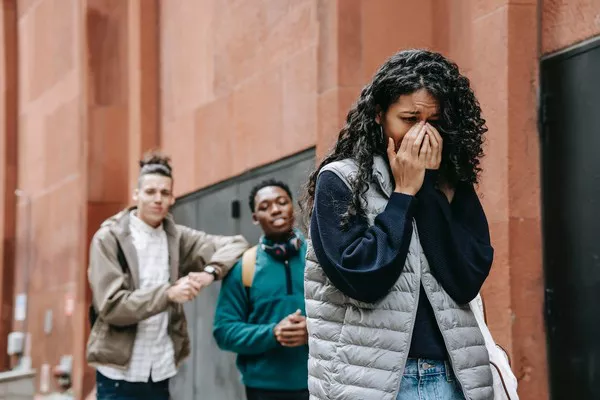Social anxiety can be a debilitating condition that affects individuals in various aspects of their lives, including school, work, and social interactions. While there are traditional treatment options such as therapy and medication, some people prefer to explore natural remedies like vitamins to alleviate their symptoms. In this article, we will discuss the top vitamins that have been shown to help with social anxiety.
Vitamin D
Vitamin D is an essential nutrient that plays an important role in various body functions, including bone health, immune function, and mood regulation. Studies have found that individuals with low levels of vitamin D are more likely to experience symptoms of anxiety and depression. Vitamin D also regulates the production of serotonin, a neurotransmitter that is linked to feelings of happiness and well-being.
Subpoints:
- Spend time outdoors to increase vitamin D levels naturally
- Take vitamin D supplements if needed
- Aim for a blood level of at least 30 ng/mL
B-complex Vitamins
B-complex vitamins refer to a group of eight water-soluble vitamins that work together to support energy metabolism, brain function, and stress management. These vitamins include thiamin (B1), riboflavin (B2), niacin (B3), pantothenic acid (B5), pyridoxine (B6), biotin (B7), folate (B9), and cobalamin (B12). B vitamins play a crucial role in the synthesis of neurotransmitters, which are chemical messengers that regulate mood and emotions.
Subpoints:
- Eat foods rich in B-complex vitamins such as whole grains, nuts, and leafy greens
- Take a B-complex supplement if your diet doesn’t provide enough
- Consider taking a methylfolate supplement if you have a MTHFR gene mutation
Magnesium
Magnesium is an essential mineral that is involved in over 300 biochemical reactions in the body, including nerve and muscle function, energy production, and stress response. Some studies suggest that magnesium supplementation may be effective in reducing symptoms of anxiety and depression. Magnesium also regulates the production of GABA, a neurotransmitter that promotes relaxation and calmness.
Subpoints:
- Eat magnesium-rich foods such as spinach, almonds, and avocado
- Take a magnesium supplement if needed
- Start with a low dose and increase gradually to avoid digestive discomfort
Omega-3 Fatty Acids
Omega-3 fatty acids are essential fatty acids that are found in high concentrations in fatty fish like salmon, mackerel, and sardines. Omega-3s have been shown to reduce inflammation, improve heart health, and support brain function. Some studies suggest that omega-3 supplements may also be effective in reducing symptoms of anxiety and depression.
Subpoints:
- Eat fatty fish at least twice a week
- Take an omega-3 supplement if you don’t eat fish or prefer a supplement form
- Look for a supplement that contains both EPA and DHA
Vitamin C
Vitamin C is a water-soluble vitamin that acts as an antioxidant in the body, protecting cells from damage caused by free radicals. Studies have found that vitamin C supplementation may help reduce symptoms of anxiety and improve mood. Vitamin C also plays a crucial role in the production of neurotransmitters like dopamine and norepinephrine, which regulate mood and emotions.
Subpoints:
- Eat vitamin C-rich foods such as citrus fruits, berries, and bell peppers
- Take a vitamin C supplement if needed
- Look for a supplement that contains at least 500mg of vitamin C per serving
While vitamins are not a cure for social anxiety, they can play a supportive role in reducing symptoms and improving overall well-being. The top vitamins to alleviate social anxiety include vitamin D, B-complex vitamins, magnesium, omega-3 fatty acids, and vitamin C. It’s important to note that supplements should be used in conjunction with other treatment options, such as therapy or medication, and under the guidance of a healthcare provider.
Related Topics:




























